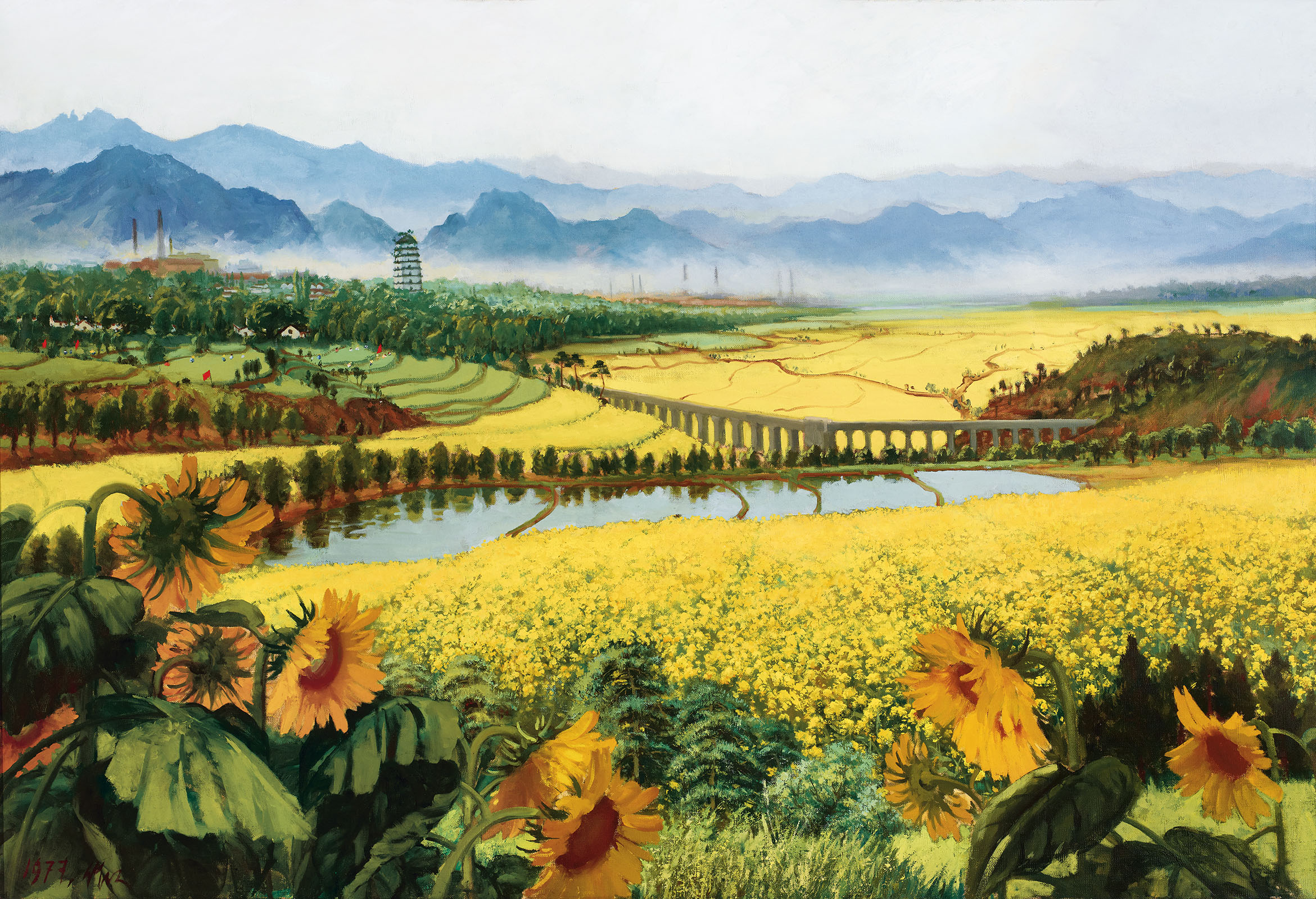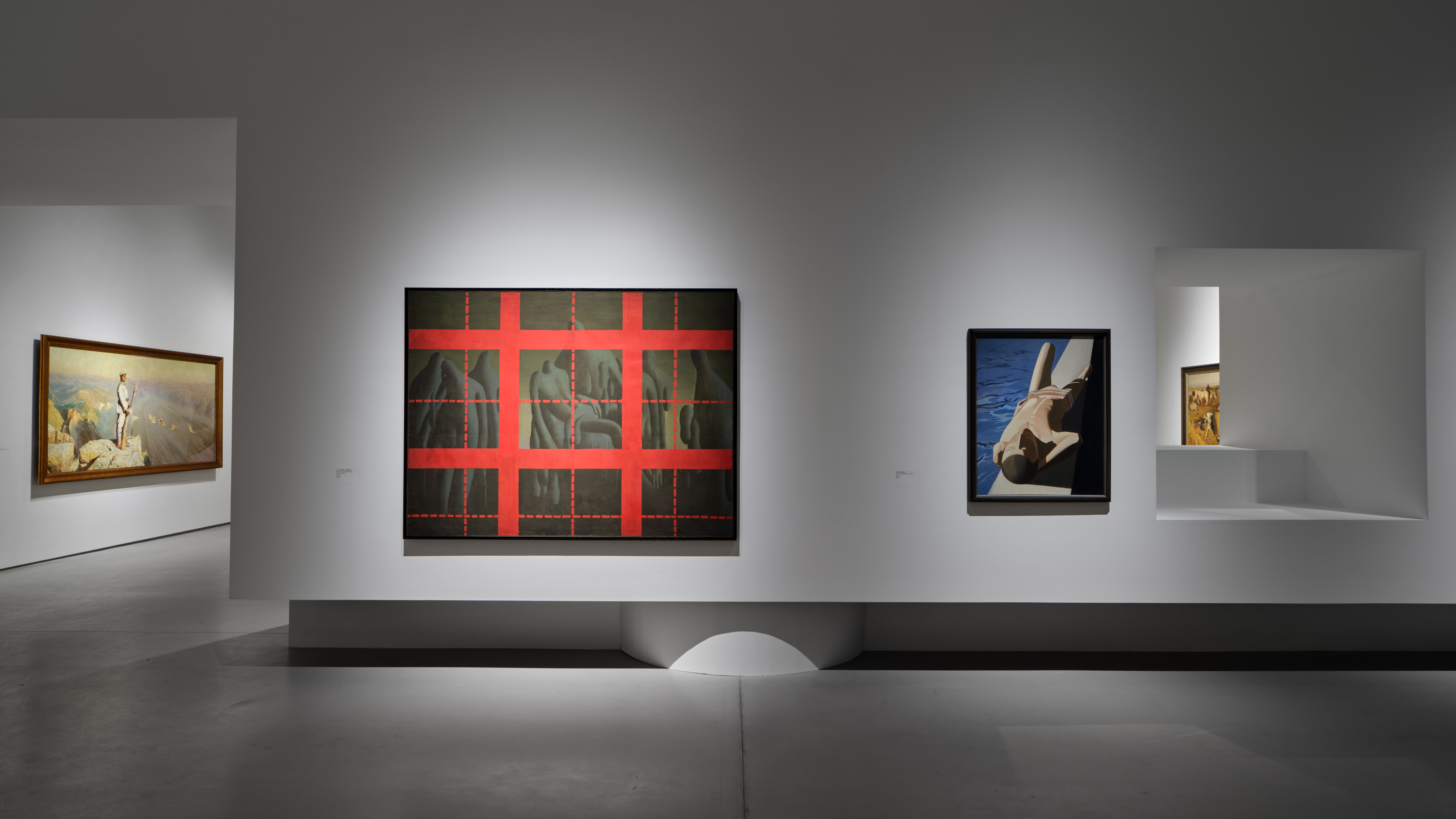
Wu Zuoren
The Yellow Blooms on the Battlefield Smell Sweeter
1977
Oil on canvas
At the beginning of the Cultural Revolution, Wu Zuoren was publicly denounced and expropriated of his belongings before being sent down to the countryside. For five years, Wu was forced to put down his brush and accept his fate in a rural re-education labor camp, only coming back to his artistic work in the middle of the Cultural Revolution (1972).
Landscape painting is an important subject of Wu Zuoren’s work during this period. The Yellow Blooms on the Battlefield Smell Sweeter was created in 1977, just after the Cultural Revolution. Learning from Mao Zedong’s poem The Double Ninth, Wu Zuoren painted the piece to commemorate the first anniversary of Mao’s death and ‘send unlimited reminiscences’. The work is framed with a broad field of view, and the composition is wide and steady. Wu displays a degree of management in his choice to accept, reject and combine elements of the scene. Shrouded by the mountains, factories and towns are faintly visible, and pagodas and buddhist temples harmonize with terraced fields. From a closer position, the bridges and ponds make up a sloping “T” shape, cleverly linking the vista and nearby golden canola fields. The foreground is a close-up of several sunflowers in full bloom. While the “yellow blooms” described by Mao Zedong are often represented by rapeseed and sunflower, the two crops are not grown in the same season. The artist uses Chinese painting techniques to subjectively refine and rearrange the objective image, virtualizing a golden time beyond natural seasons and eclectically but effectively blending the realism of oil painting with the Chinese painting ethos of “searching lofty peaks to draft” (搜尽奇峰打草稿). The work is considered representative of landscape themes in Wu Zuoren’s exploration of nationalism in oil painting.
Linking the evolution of Wu’s life with the development of painting styles allows for a deeper understanding of the piece’s optimistic spirit. It is not just a simple thematic creation, but a heartfelt expression of Wu Zuoren’s inner self as he faced the gradual arrival of a new era.
(Edited by Lijie Wang & Miao Zijin)


